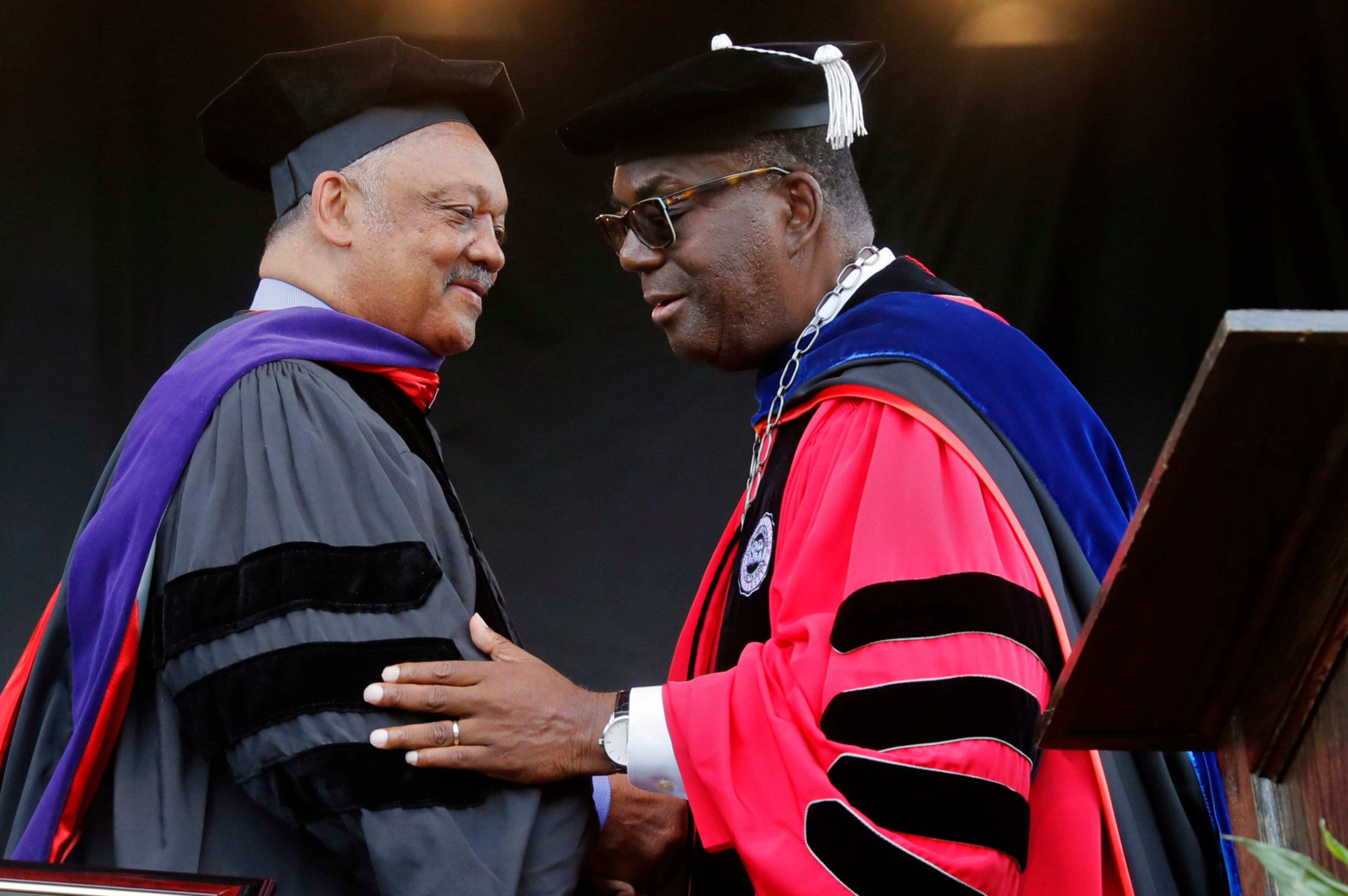Feds’ proposed new rule for trans student athletes could impact Georgia ban

Public schools and colleges would not be allowed to completely ban transgender athletes from sports teams, under a new rule proposed by the Biden administration.
The move could create a challenge for Georgia’s public schools. The Georgia High School Association requires athletes to compete on teams based on their gender assigned at birth, essentially banning transgender athletes from competing in school sports.
The U.S. Education Department, which issued the proposal Thursday, says elementary school students would generally be able to participate in team sports consistent with their gender identity. For older students, the department says limitations may be allowed in some cases — for example, to ensure fairness or prevent sports-related injuries.
The proposal will undergo a 30-day public comment period. If it is implemented, federal officials say outright bans on transgender athletes would violate Title IX, the landmark legislation that bars sex-based discrimination in schools.
“I am very pleased to see the Biden administration take this opportunity to really clarify that Title IX should not be used to discriminate against transgender individuals,” Jeff Graham executive director of Georgia Equality, an LGBTQ advocacy group, said in an interview Friday.
Georgia State University College of Law professor Anthony M. Kreis says if the proposed interpretation of Title IX is adopted, it would trump the GHSA’s ban.
“The Biden administration’s proposal recognizes that the kind of competitive concerns that might arise in high school sports do not have the same weight for elementary and middle school students because of little physical difference between boys and girls,” Kreis said. “I think the proposal also acknowledges that not all sports are the same, so regulating trans athletes in high school fencing might well not make sense in the same way regulations might reasonably apply for swimming.”
The GHSA amended its policy in May of 2022 to require athletes to compete on teams based on their gender assigned at birth. Efforts to contact the GHSA were unsuccessful Friday afternoon.
A 2022 study by the law school at the University of California, Los Angeles shows about 1.2% of Georgians between the ages of 13 and 17 identify as transgender. That’s about 8,500 minors.
LGBTQ legal organization Lambda Legal opposes the GHSA ban and is defending transgender athletes in cases in West Virginia and Tennessee. Carl Charles, a senior attorney with the organization’s southern regional office in Atlanta said the Biden administration’s proposed rule could be good news for transgender athletes in Georgia.
“We’ll have to wait and see what it ends up looking like in its final form,” he said. “We think it would have a pretty significant impact on states that maintain total bans like Georgia, like West Virginia, like Tennessee.”
Charles said schools, districts, and states that seek to prevent transgender athletes from participating in school sports would have to explain how that decision is connected to an educational objective.
Kreis said the rule’s final interpretation will likely offer a framework for state officials, giving them room to make nuanced decisions.
“The Title IX interpretation is sure to spark a new round of intense debate in Georgia about the rights of transgender students as Georgia officials go back to the drawing board,” he said.



